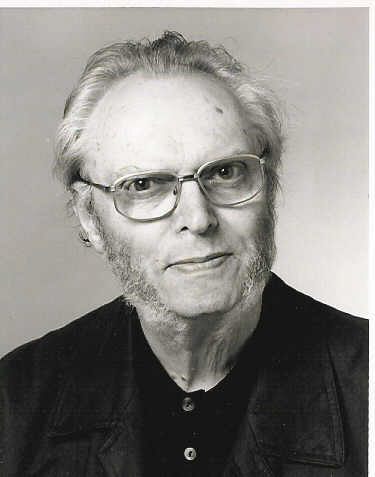 Professor
Dr Herbert Schultze 1928-2009 Professor
Dr Herbert Schultze 1928-2009
The death on June 6th 2009 at 80 of Herbert Schultze marks the
end of an era in the history of Religious Education in Europe.
His efforts to straddle the different pedagogies and philosophies
of Religious Education over 30 years will remain a monument to
his endeavour. Born in Stettin in 1928 he was educated in Berlin
just before the Second World War and later, like the current Pope,
was required to join the Hitler Youth. In 1944 he was sent to
the eastern front and wounded. It was in 1945 when he was in hospital,
with the news that Russian troops were advancing with little regard
for the German wounded, that he managed to flee from hospital
and was rescued by American and British troops. He was not yet
17.
For those who knew Herbert well, this was not a period about
which he chose to talk but these traumatic experiences and his
salvation by western forces was to have a significant influence
on his life. His vision was to work productively towards a better
understanding between all nations, especially in his field of
Religious Education. He studied in the theological faculty at
the University in Berlin receiving his doctorate in 1952. He continued
to work as a school teacher and for a while, in 1954, in the Vikariat
in the Evangelical Church of Berlin - Brandenburg. In 1962 he
became Director of the Religious Teaching Insitut of the Evangelisch-Lutherischen
church in Hamburg where he stayed for six years.
He came to the fore in the early 1970s when he was appointed
as a Director of the prestigious Comenius Institut in Münster.
His work there, from 1971 until 1988 gave him the platform and
the opportunity to become an ambassador for Religious Education
across Europe. When appointed Secretary of the Intereuropean Commission
on Church and Schools (ICCS) in 1976, he worked closely with Colin
Alves, then President of ICCS and, later General Secretary of
the Church of England’s Board of Education, to promote a
pan–European understanding of Religious Education. In 1982
he became President remaining there until 1989. During this period,
Herbert Schultze travelled across Europe. He became a well-known
figure with his black beret, his long coat, at least two heavy
bags and (before he stopped smoking) a long cigarette holder.
He was invited to become a member of the Shap Working party
on World Religions in Education in the 1980s bringing enormous
insight and experience to the Working Party and a collection of
like minded contacts around Europe, East and West. He, with colleagues,
formed the European Association for World Religions in Education
(EARWRE) in 1990 and became its first Chair.
Herbert was committed to dialogue between religions and between
educators. He set up an exchange of teachers between Germany and
England that would last for twenty years, giving classroom teachers
a unique insight into the everyday classrooms of their two countries.
His writing was mainly collaborative; he was an animateur and
many of us became involved in a number of projects through his
initiative. He co-operated in the publication of a number of volumes
on Christian education in the 1970s in England, The Netherlands,
Sweden, France and Poland and also Greece in 1988 and the German
Democratic Republic, published in 1990, just after the Berlin
Wall came down. He was, with a Muslim colleague, Professor Falaturi,
instrumental in pioneering a series of studies across Europe that
examined the representation of Islam in RE and History textbooks
in the early 1990s.
When he left the Comenius Institut, he carried on working and
travelling. He moved back to Hamburg but continued to teach in
the University of Duisburg-Essen and received a rich reward for
all his efforts with the award of ‘Honorary Professor’
being conferred on him on 2005.
His influence is difficult to over state. He was committed to
the teaching of RE but the structures for, and control of, RE
continue to be very different in the European countries and Herbert
became the point of reference for what was happening where. I
followed him as President of ICCS in 1989 and on one occasion,
with twenty people around a table from different countries, observed
that the common denominator was Herbert Schultze. His work has
been taken up and developed by others but Herbert was the trail-blazer.
Others have followed, but Herbert Schultze did the hard innovative
work.
He leaves a widow, his beloved Dorothee, whom he met many years
ago but finally married in the 1990s in the only Protestant Church
in Salzburg with the reception served from the car boot. He remained
devoted to his son, Nicolas, from a previous marriage, and wanted
him to be protected from the type of up-bringing he had experienced
in his teenage years. Herbert was eccentric, strong willed and
delightful. He lived a full life and all those who work in Religious
Education in Europe need to mark the passing of this extraordinary
man.
Alan Brown - Shap executive
|

